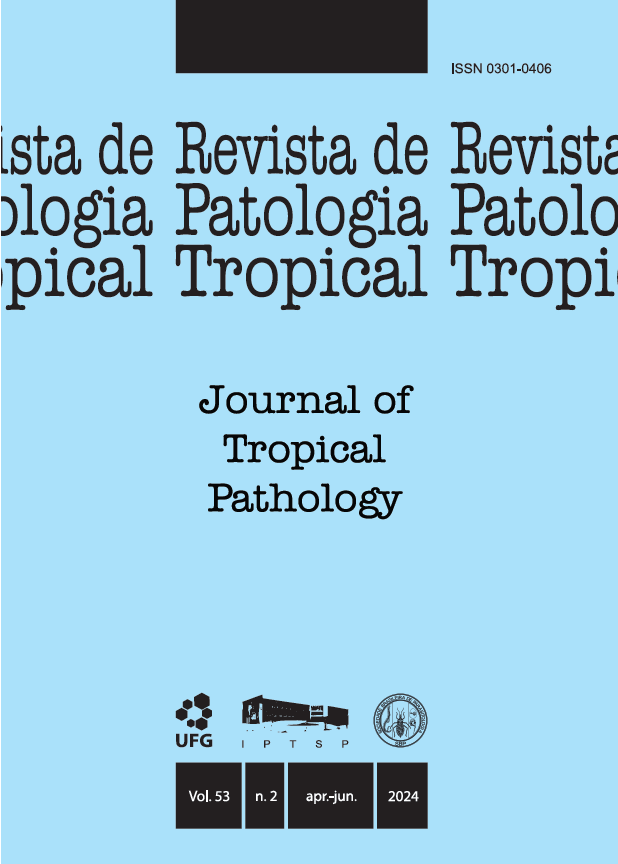Epidemiological aspects and malacofauna of the São Francisco River, northeastern Brazil
DOI:
https://doi.org/10.5216/rpt.v53i2.78299Resumo
Limnic mollusks could negatively affect the ecosystem in which they are found, the economy, human and animals´ health. This study reports on a survey of freshwater sources mollusks and their spatial distribution, as well as investigating them for the presence of trematodes in the municipality of Nossa Senhora de Lourdes, Sergipe, Brazil. This study was performed through March 2016 and November 2017. The mollusks were collected in different water bodies in the georeferenced studied area, identified and analyzed for the presence of trematodes. Thirty-four water bodies were sampled, and mollusks were found in 18 (53%) of them. From the 5,196 found, 4,747 (91%) were gastropods and 449 (9%) bivalves - distributed in seven families and eleven species. Among the species found, two are of medical-veterinary importance (Biomphalaria straminea and Melanoides tuberculata) and four are exotic invasive species (Corbicula fluminea, C. largillierti, Limnoperna fortunei and M. tuberculate). Of the 1,473 mollusks analyzed for trematodes, five (0.33%) gastropods were infected, one specimen contained Vivax, two Pleurolophocercous, and two Virgulate. For the first time these six taxa have been described in the State of Sergipe: Drepanotrema depressissimum, D. cimex, D. lucidum, Ancylidae, Physa acuta and C. largillierti. This survey contributes to the knowledge of the biodiversity and spatial distribution of limnic mollusks and the presence of trematodes, in addition to serving to support the monitoring and prevention of exotic bio invasive species, and intermediate hosts, since the studied area presented potential for helminth transmission.
KEY WORDS: Snails; trematodes freshwater sources; spatial distribution; exotic and invasive mollusks; Sergipe State.
Downloads
Downloads
Publicado
Como Citar
Edição
Seção
Licença
The manuscript submission must be accompanied by a letter signed by all authors stating their full name and email address, confirming that the manuscript or part of it has not been published or is under consideration for publication elsewhere, and agreeing to transfer copyright in all media and formats for Journal of Tropical Pathology.

